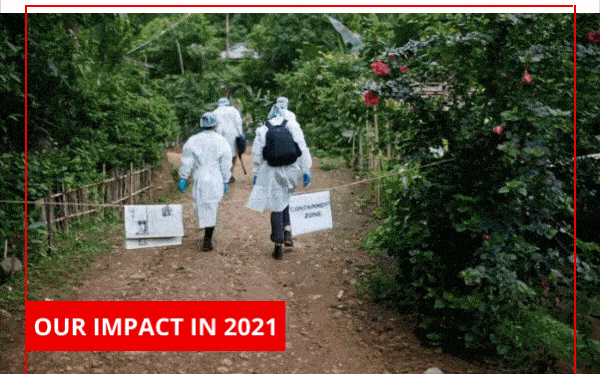 |
|
MSF India Newsletter
June 2022
|
|
Our actions are first and foremost medical. Quality care for the individual is central to our humanitarian objective. We seek to provide high quality care and to act always in the best interest of patients; to respect their confidentiality, their right to make their own decisions and above all, to do them no harm.
In 2021, we balanced our priorities for existing projects with the new challenges that COVID-19 placed on us all. From providing life-saving, holistic care for an extremely vulnerable cohort of highly stigmatized advanced HIV patients to taking basic healthcare to people living in remote villages, throughout our work, we ensured we reached out to those most vulnerable, those most neglected.
|

|
|
| | |
|
|
Your donation will help us bring lifesaving medical care to people in need. Help us save lives.
|
|
|
|
|
| | |
| | | |
|
 |
|
| Near zero healthcare-seeking behaviour among gender-based violence survivors |
|
The Government of India’s latest National Family Health Survey (NFHS-V) data reflects a dismal state in the practice of seeking medical care post gender-based violence. Current estimates reflect that healthcare-seeking behavior among survivors is still near zero. The new survey data, which was released last in 2015-16 as NFHS-IV, only record a marginal increase in survivors of sexual violence seeking help from medical professionals (from 0 to 1.2). MSF stresses for community linked, survivor-centric care model after the latest data in India.
 |
|
|
|
|
|
| | | |
| | | |
|
| The mental health needs in Ukraine |
|
| After 100 days of the war in Ukraine, our mental health teams across the country are raising the alarm on the worrying psychological symptoms they are seeing.
|
|
| People escaping shelling, living with war wounds, or worrying about their loved ones in conflict zones usually don’t consider their mental health, say MSF psychologists. As a result, the psychological consequences of the current conflict can seem invisible, but that doesn’t mean they aren’t there.
|
|
While MSF is providing mental health support and additional training to psychological staff in medical facilities across Ukraine, much more needs to be done.

|
|
|
|
|
|
 |
|
| | | |
|
 |
| Gaza
|
| Some wounds never heal
|
|
|
 |
| Afghanistan |
| Saving a young life |
|
|
 |
| Kenya |
| Malnutrition remains high as drought continues |
|
|
 |
| Access Campaign |
| MSF responds to new WHO guidance recommending vastly shorter, improved and better-tolerated treatment for multi drug-resistant TB |
|
|
|
| | |
|
|
Missing Maps Mapathon
|
|
|
We may be biased, but believe us when we say there’s nothing better than organising a Missing Maps party. Last month, we had a mapathon event at Bennett University, Greater Noida. Around 50 participants mapped over 3000 buildings of an unmapped area in Mandoul, Chad – an area that has been impacted in recent years by floods, epidemics and malnutrition. . By mapping this remote area, university students were directly able to support our teams reach populations quicker to providing life-saving medical care. You can also help us map these areas. Team up with your colleagues/friends and organise a mapathon at your college, office, and online events for the public. Interested?
|
|

|
|

|
|
|
| | |
Doctors Without Borders India / Medecins Sans Frontieres
5th Floor, Okhla NSIC Metro Station Building. |
|


















